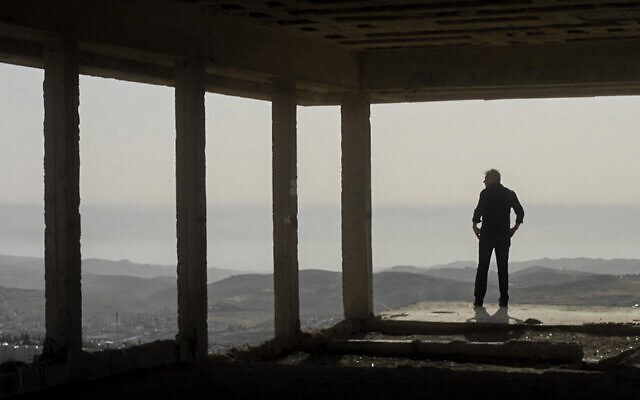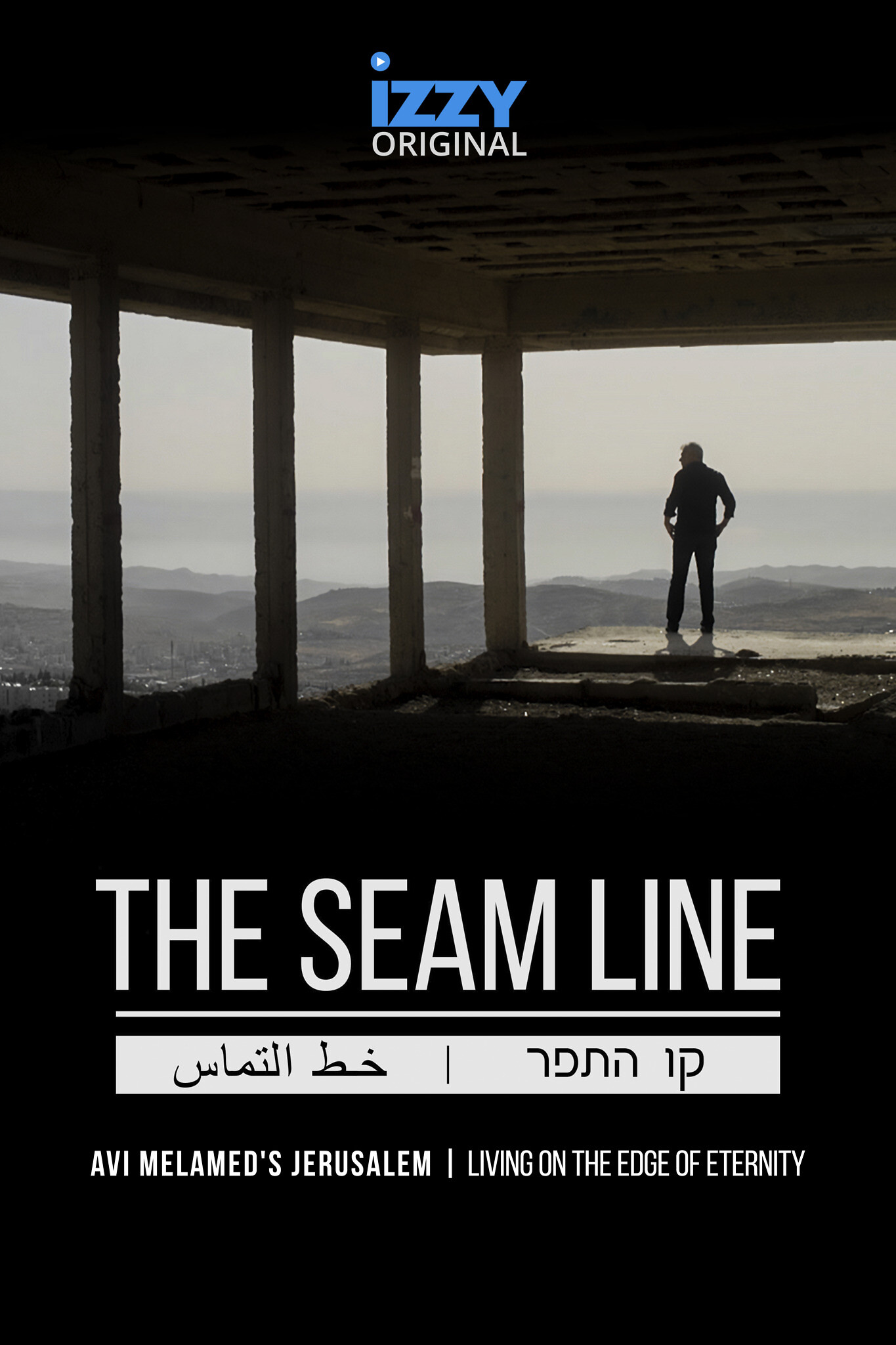In 1st original series, streamer Izzy plumbs Jerusalem’s depths
‘The Seam Line,’ a five-part educational show about the politics and populations of Jerusalem hosted by analyst Avi Melamed, set to wrap June 15
Jessica Steinberg covers the Sabra scene from south to north and back to the center.

Streaming platform Izzy recently launched its first original programming, a five-part series about the complicated world of Jerusalem hosted by Avi Melamed, a former municipal adviser and a font of information about the capital city.
“The Seam Line,” which began airing on May 19, Jerusalem Day, comes off as educational and engaging, as Melamed offers a deep dive into the complex history, demographics and politics of Jerusalem.
Drawing on his Jerusalem upbringing, coupled with an in-depth knowledge of the city’s people and places, Melamed attempts to explain why the tensions of Jerusalem run so deep and strong.
The series is narrated in English, with a healthy dose of subtitled Hebrew and Arabic dialogue provided by the Jerusalemites who populate the series, attempting to bring viewers into their worlds.
Izzy Stream Israel was launched at the height of the streaming craze in 2020 with hopes of building it into an Israel-centric Netflix.
Until now, the platform has licensed existing content through Israeli filmmakers, distributors, and sales agents, building a library of some 300 hours of content, it says. Those license deals are why the platform is unavailable in Israel, despite being open to subscribers everywhere else in the world for $10 a month.
The first episode of “The Seam Line” focuses on the topography and geography of the Jerusalem region, while the second focuses on the densely populated one-square-mile neighborhood known as the Old City. The third episode focuses on the Temple Mount complex, the fourth on the Arab neighborhood of Isawiya, and the final one on the liminal spaces between the outlying neighborhoods of Jabel Mukaber and East Talpiot.
Melamed, an author and expert on Middle Eastern politics, walks throughout each location, meeting shopkeepers, communal leaders and residents, many of whom he knows from his years as the city’s senior Arab affairs adviser during the first and second intifadas in the late 1980s and early 2000s.
He brings viewers through Jerusalem’s narrow streets and up to its rooftops, showing how life is navigated by different populations and cultures. Locals who have spent their lives trying to make this amalgam of neighborhoods work add vibrant color to the themes.
While there are both Israeli and Palestinian voices in the series, the Israeli speakers tend to feel genuine and at ease, while some of Melamed’s Arabic interviewees sound stiffer, perhaps due to unease with being featured on a platform that proudly markets itself as Jewish and Zionist.
Melamed noted the complications involved in creating this kind of series, such as hiring a Palestinian film crew when his Israeli team balked at filming segments in the Arab East Jerusalem neighborhoods of Issawiya and Jabel Mukaber. The fraught nature of the subject material upped the stakes.

And perhaps that’s the point of “The Seam Line,” named for the invisible border that runs between East and West Jerusalem. Though it’s ostensibly united, the city’s uneasy divisions persist; its communities coexist, but far from seamlessly.
“From the start, I said it’s not ‘Fauda’ or ‘Mossad’ or ’24,'” said Melamed. “It’s educational content. It’s not sensational.”
Melamed learned Arabic before serving in an IDF intelligence unit. He worked as the Arab affairs adviser to Jerusalem mayor Teddy Kollek during the tense years of the First Intifada, in the late 1980s.
Today, he writes a column for USA Today, speaks regularly to groups in the US and recently published his third book.
Melamed and his partner in life and work, Maia Hoffman produced the show via their educational nonprofit Inside the Middle East, including writing scripts.
The entire endeavor was a challenge for the two first-time producers, who dove into every aspect of the process, including the editing, in order to end up with the program they wanted.
“The Seam Line” was launched on Jerusalem Day, with the fifth and final episode out on Thursday, June 15.
“We’re very proud of it,” said Melamed. “People should understand how it looks and what it is. It’s to supply an experience that’s pleasant but intellectually educational.”









